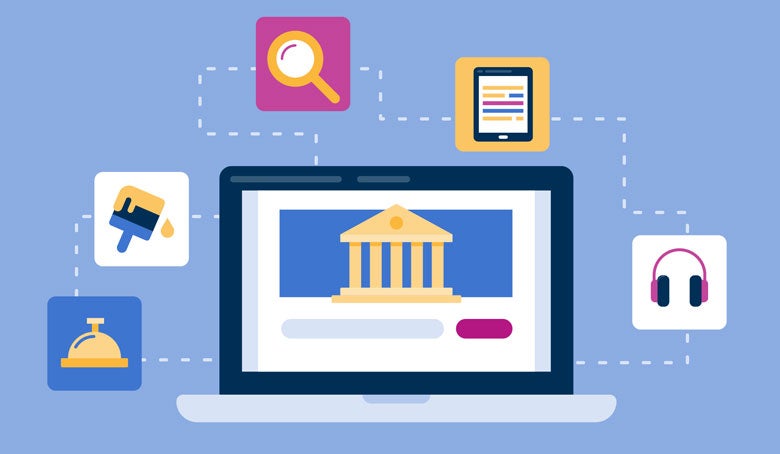Libraries are playing a pivotal role in the response to the novel coronavirus pandemic. But not all businesses and citizens impacted by COVID-19 have recognized the value that libraries bring to their communities.
How can libraries and their staff members continue to advocate for themselves and demonstrate their value during these challenging times?
“We need imagination now more than ever,” say Martin Reeves and Jack Fuller of the Boston Consulting Group’s Henderson Institute. In their blog post for the Harvard Business Review, Reeves and Fuller take on the COVID-19 pandemic and outline steps for navigating this crisis.
While it is natural and necessary to focus on the immediate crisis, the long-term success of libraries ― and possibly their survival ― depends on keeping our capacity for imagination from becoming collateral damage. Even as we navigate the shift from place-based services and collections to a digital context, and even as we face uncertain budgets and the possibility of reduced staffing, we must continue to innovate.
Reeves and Fuller provide a seven-step process for supporting creative responses to today’s crisis:
- Carve out time for reflection.
- Ask active, open questions.
- Allow yourself to be playful.
- Set up a system for sharing ideas.
- Seek out the anomalous and unexpected.
- Encourage experimentation.
- Stay hopeful.
The public library has always been valued for its collections, its knowledgeable and helpful staff and its physical presence in its neighborhoods. I believe these are components of our value, but they are not the real value that libraries provide.
The public library has always been valued for its collections, its knowledgeable and helpful staff and its physical presence in its neighborhoods. I believe these are components of our value, but they are not the real value that libraries provide.
The second step should be familiar to those of us who have provided readers’ advisory or reference and information services. Research has documented that the use of open-ended questions leads to providing accurate answers to user questions. Reeves and Fuller suggest using some of the open-ended questions below to increase inspired responses to today’s challenges:
- Which needs or products are taking center stage?
- What customer needs exist for which there is no current solution?
- What are we not doing for our customers?
- If we were starting over now, what company and offering would we build?
- Why are today’s loyal customers still doing business with us?
Pondering these questions reaffirmed something that I have thought for several years. The public library has always been valued for its collections, its knowledgeable and helpful staff and its physical presence in its neighborhoods. I believe these are components of our value, but they are not the real value that libraries provide. It is not our books, but what our readers do with them that matters. It is not our buildings, but the learning, insights and joy that library programs provide. It is not our staff, but the assistance they give in helping individuals define and pursue their passions. The closing of our buildings may reveal our true value in our communities. We not only answer questions; we also fuel curiosity.
The digital context certainly presents us with challenges, but the shift is also an opportunity to assess what really matters in the work we do. For me, our true product is the relationship we form through each conversation we have with our users. These conversations provide us with an opportunity to move library service from anonymous and episodic into long-term, valued connections that enrich not only our users and ourselves, but also the communities in which we reside.
